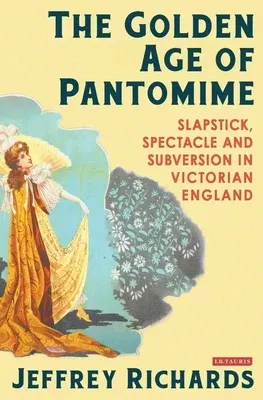Of all the theatrical genres most prized by the Victorians, pantomime is
the only one to have survived continuously into the twenty-first
century. It remains as true today as it was in the 1830s, that a visit
to the pantomime constitutes the first theatrical experience of most
children and now, as then, a successful pantomime season is the key to
the financial health of most theatres. Everyone went to the pantomime,
from Queen Victoria and the royal family to the humblest of her
subjects. It appealed equally to West End and East End, to London and
the provinces, to both sexes and all ages. Many Victorian luminaries
were devotees of the pantomime, notably among them John Ruskin, Charles
Dickens, Lewis Carroll and W.E. Gladstone. In this vivid and evocative
account of the Victorian pantomime, Jeffrey Richards examines the potent
combination of slapstick, spectacle and subversion that ensured the
enduring popularity of the form. The secret of its success, he argues,
was its continual evolution.
It acted as an accurate cultural barometer of its times, directly
reflecting current attitudes, beliefs and preoccupations, and it kept up
a flow of instantly recognisable topical allusions to political rows,
fashion fads, technological triumphs, wars and revolutions, and society
scandals. Richards assesses throughout the contribution of writers,
producers, designers and stars to the success of the pantomime in its
golden age. This book is a treat as rich and appetizing as turkey, mince
pies and plum pudding.

